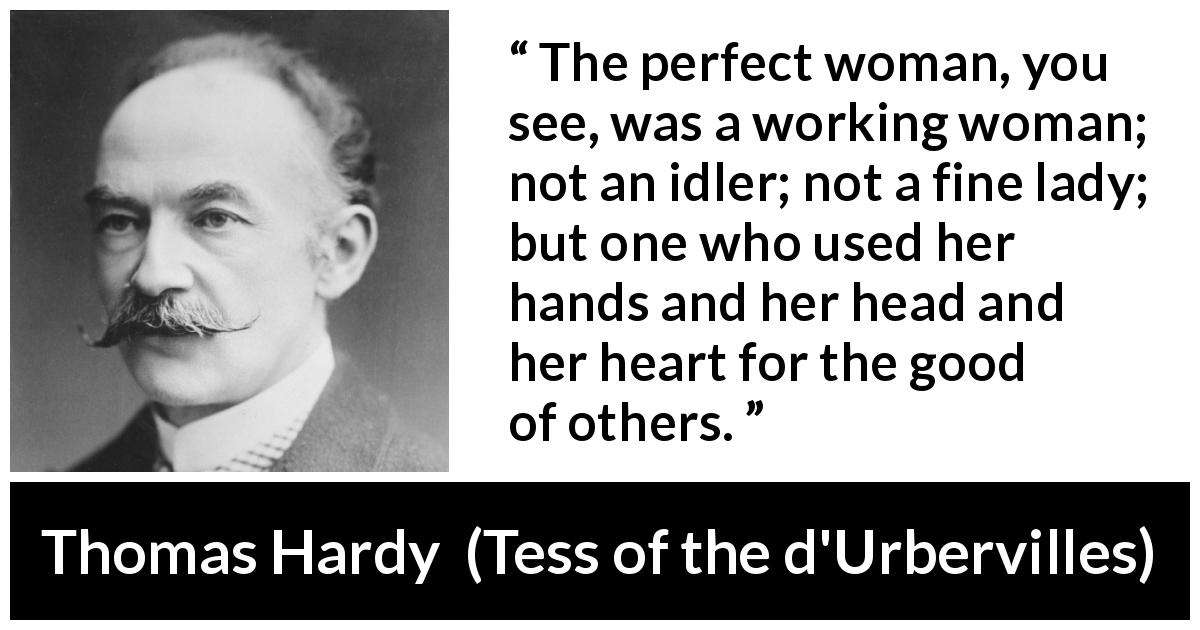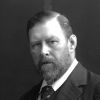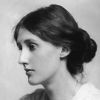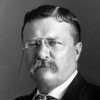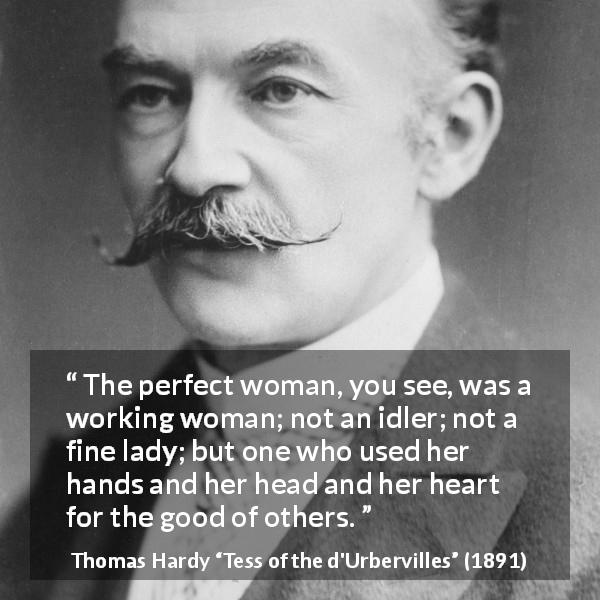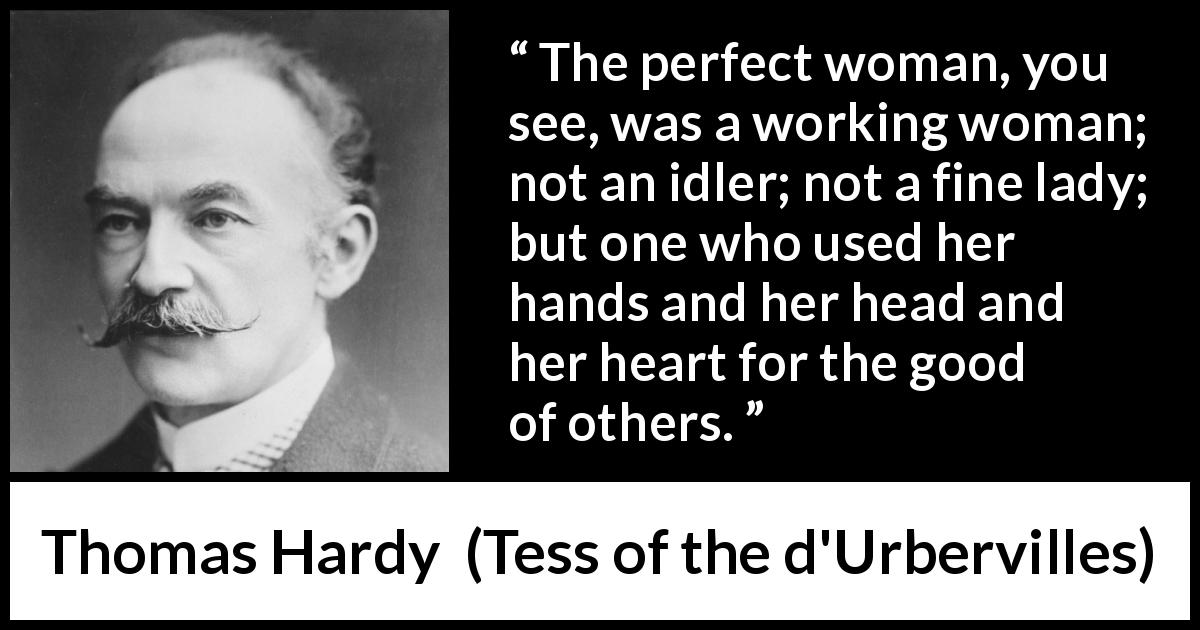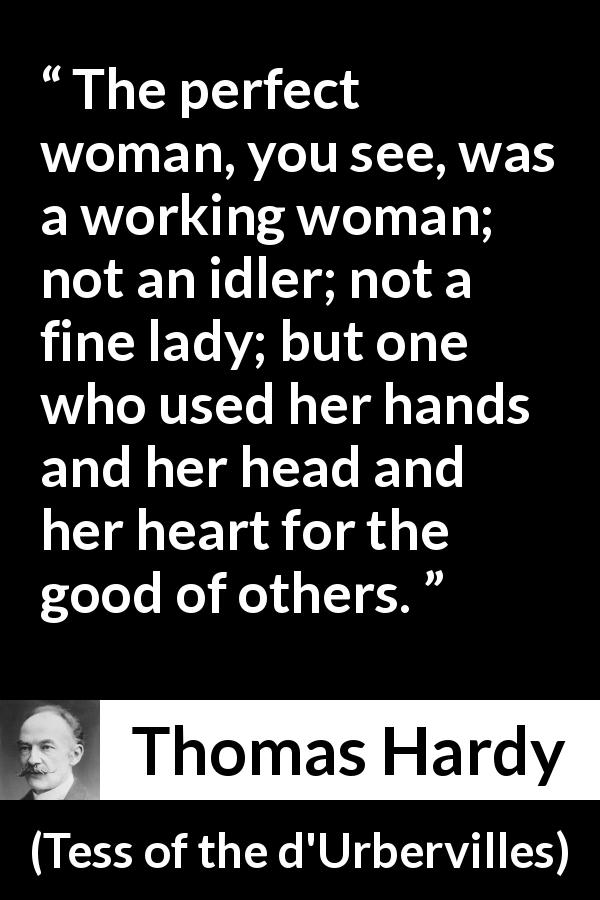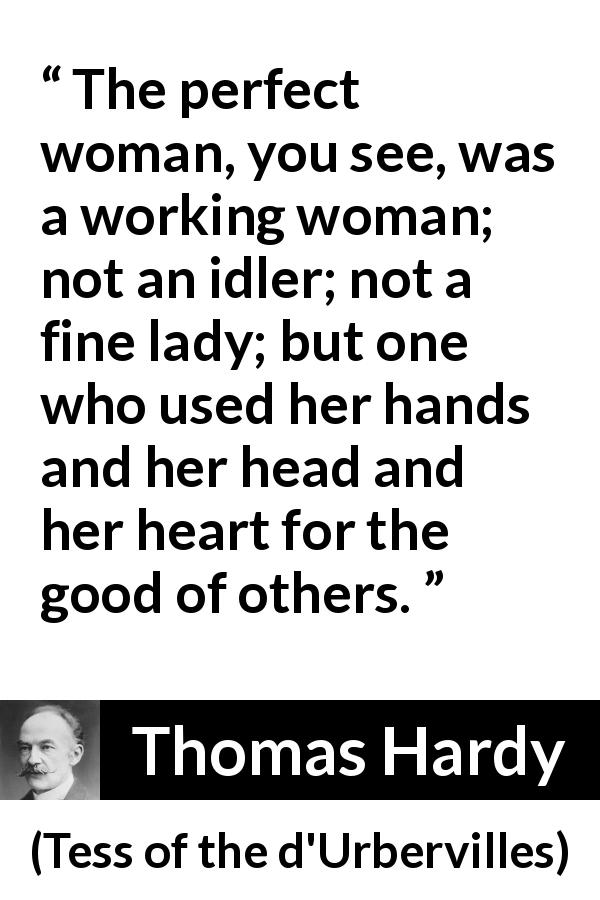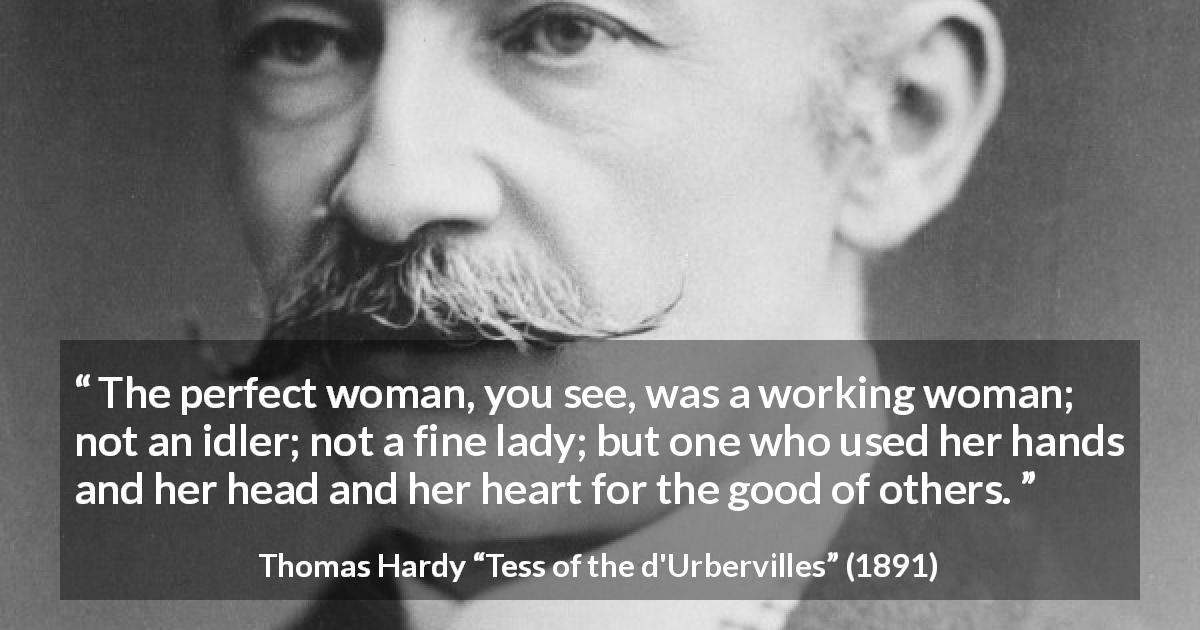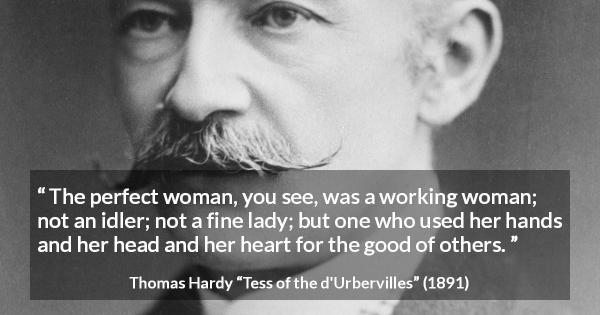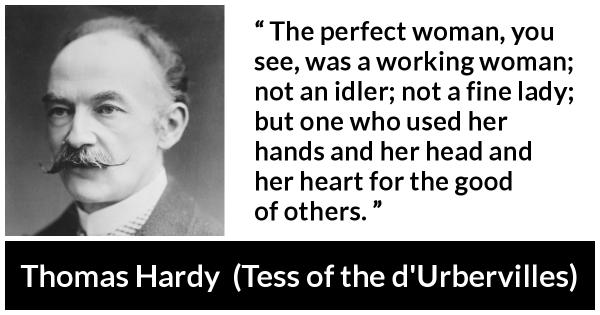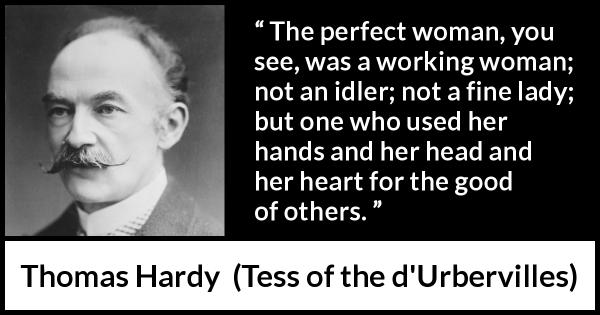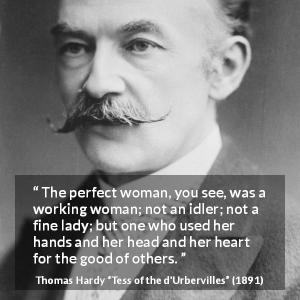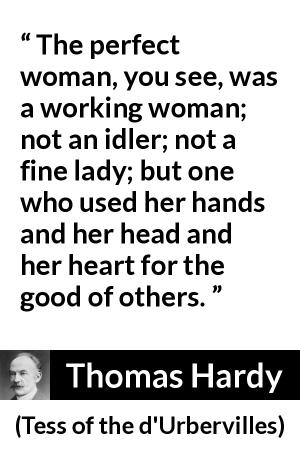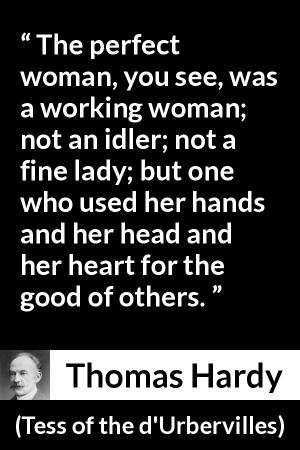“ The perfect woman, you see, was a working woman; not an idler; not a fine lady; but one who used her hands and her head and her heart for the good of others. ”
Thomas Hardy, Tess of the d'Urbervilles (1891). copy citation
| Author | Thomas Hardy |
|---|---|
| Source | Tess of the d'Urbervilles |
| Topic | woman working hands |
| Date | 1891 |
| Language | English |
| Reference | |
| Note | |
| Weblink | http://www.gutenberg.org/files/110/110-h/110-h.htm |
Context
“Many daughters have done virtuously, but thou excellest them all.»
When prayers were over, his mother said— «I could not help thinking how very aptly that chapter your dear father read applied, in some of its particulars, to the woman you have chosen. The perfect woman, you see, was a working woman; not an idler; not a fine lady; but one who used her hands and her head and her heart for the good of others. 'Her children arise up and call her blessed; her husband also, and he praiseth her. Many daughters have done virtuously, but she excelleth them all.' Well, I wish I could have seen her, Angel. Since she is pure and chaste, she would have been refined enough for me.»” source
When prayers were over, his mother said— «I could not help thinking how very aptly that chapter your dear father read applied, in some of its particulars, to the woman you have chosen. The perfect woman, you see, was a working woman; not an idler; not a fine lady; but one who used her hands and her head and her heart for the good of others. 'Her children arise up and call her blessed; her husband also, and he praiseth her. Many daughters have done virtuously, but she excelleth them all.' Well, I wish I could have seen her, Angel. Since she is pure and chaste, she would have been refined enough for me.»” source
